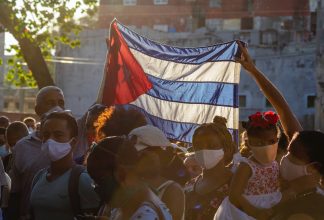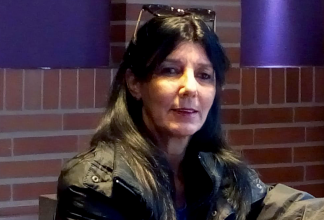Open Letter to EU Over Human Rights Issues in Cuba Trade Negotiations
Civil Rights Defenders and 23 other European and Cuban organisations in a letter to Federica Mogherini from the European Commission voiced their opinions regarding the demands that the EU should seek from Cuba in the ongoing negotiations between both parties.
Last week the EU and Cuba concluded the fifth round of negotiations on closer political dialogue, cooperation and trade agreement. The results have not been published to date, leaving it safe to asume that the EU has had little or no success when it comes to its chief objective; convincing the Cuban government to improve their human rights record.
Soon after the last round of the negotiations concluded, the Cuban government published a list of 3522 prisoners that they intend to pardon as a gesture to the Pope who will visit Cuba at the end of this week. Not a single political prisoner was mentioned on the list. It is clear evidence that the Cuban government does not intend to honour the objectives set by the EU.
If the EU wants to achieve anything in terms of human rights in Cuba, it needs to use the experiences from other negotiations processes, and formally include Cuban civil society in the negotiation process.
When the EU negotiated a similar agreement on political dialogue, cooperation and trade with the countries of Central America, signed in 2003, there was continuous dialogue with civil society, political opposition and media. This inclusive strategy continued when the negotiations on an association agreement were initiated in 2007, and was one of the core factors of the success of the agreement that was finally signed in 2012.
Please find the open letter in full below.
2015-09-16 Federica Mogherini
High Representative of the Union for Foreign Affairs and Security Policy
European Commission
Rue de la Loi / Wetstraat 200
1049 Brussels
Belgium
What the European Union Must Demand from Cuba in Negotiations
The European Union and Cuba are now entering the final phase of negotiations on a political dialogue, cooperation and trade agreement. According to the directives established by the European Commission, human rights will remain at the core of EU relations with Cuba. However, the big question remains; How will this manifest itself in the agreement?
So far, the Cuban government has not implemented or announced any reforms on the subject of civil and political rights. It is clear that the intention of Cuba is on the one hand to slowly open up its economy to foreign investment in order to achieve economic growth; which will make it possible for the Communist Party and the army to retain economic and political control, while on the other continuing to oppress all initiatives for the promotion of human rights.
It is precisely such a scenario that the EU must avoid by voicing clear demands in the agreement with the Cuban government. We therefore believe that the EU should demand:
1. That the EU formally invites Cuban civil society to comment on the agreement during the negotiation process and ensure adequate space for civil society in the implementation of the agreement.
When the EU negotiated an agreement with the countries of Central America, media, opposition and civil society were permitted to participate in the debate regarding the agreement. It is unacceptable that the EU could consider signing an agreement with the Cuban government without the involvement of the Cuban people.
2. That the agreement with Cuba is written in the same tone when it comes to human rights as the one between the EU and the countries of Central America. In the latter, the promotion of peace, democracy and respect for human rights is central. It also contains requirements and specific mechanisms on how to achieve this throughout the document.
If the EU signs an agreement compromising human rights standards, it undermines the political possibility of promoting positive change not only in Cuba but also in other parts of the world.
3. That European businesses investing in Cuba are allowed to hire their own staff, and are not required to use personnel proposed by the Cuban state employment agency. Furthermore employees of foreign companies should also have the possibility to form independent unions.
Several years ago the EU Commission established a strategy on Corporate Social Responsibility. Facilitating European companies’ investments in Cuba without providing the employees with the possibility to organise themselves freely in trade unions, would violate this strategy.
4. The Cuban government ratifies and starts implementing the International Covenants on Human Rights that it signed back in 2008. That it immediately halts the arbitrary arrests, repression and violence against human rights defenders. And that Cuba offers an amnesty to all political prisoners prior to the signing of the agreement.
The relationship between the EU and Cuba is a concern to all citizens, Europeans and Cubans. All citizens have the right to be informed about the progress of the negotiations, and therefore be in a position to influence the process. As it is no surprise that the Cuban government does not listen to the opinions of its own people, the signatories below, Cubans and Europeans, direct them to the EU.
Robert Hårdh, Civil Rights Defenders
Foro por los Derechos y Libertades
Ángel Moya, Movimiento Libertad Democrática por Cuba Antonio Rodiles, Estado de Sats Berta Soler,
Movimiento Damas de Blanco Laura Pollán Egberto Escobedo, Asociación de presos y expresos políticos en Cuba Félix Navarro, Partido por la Democracia Pedro Luis Boitel Hugo Damián Prieto,
Frente de Acción Cívica Orlando Zapata Tamayo José Díaz Silva, Movimiento opositor por una Nueva República – Movimiento Democracia Raúl Borges, Partido por la Unidad Democrática Cristiana.
Antonio Guedes, Asociación de Iberoamericanos por la Libertad
Ben Schennink, Cuba Futuro
Branislav Tichy, People in Peril Association
Elena Larrinaga, Observatorio Cubano de Derechos Humanos
Elizardo Sánchez Santacruz, Comisión Cubana de Derechos Humanos y Reconciliación Nacional
Henrik G. Ehrenberg, KIC
Iván Hernández Carrillo, Confederación de Trabajadores Independientes de Cuba
Javier M. Corbalán, Fundación Hispano Cubana
Kees van Kortenhof, Foundation Glasnost in Cuba
Martin Lessenthin, International Society for Human Rights
Martin Ängeby, Silc
Mervyn Thomas, Christian Solidarity Worldwide – United Kingdom
Ricardo Carreras Lario, Solidaridad Española con Cuba
Roberto de Jesús Guerra, Centro de Información Hablemos Press
Simon Panek, People in Need


